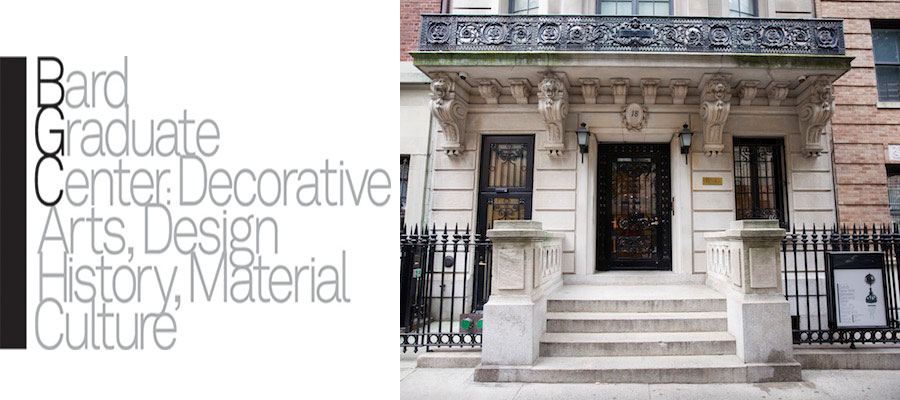Bard Graduate Center (BGC) is pleased to announce its Fields of the Future Initiative, a funded research fellowship and mentorship program aimed to help promote diversity and inclusion in the advanced study of the material world. As a reflection of the need to explore and expand the sources, techniques, voices, perspectives, and questions of interdisciplinary humanities scholarship, our research fellowship theme for academic year 2020-21 is “How do we know?”
How we know is intrinsically related to who “we” are—the varied identities, experiences, training, skills and questions we carry with us into research. Broadening the range of what we know, and our understanding of how we know it, requires new sources and new techniques, but also new voices and new visions. In an effort to promote that necessary diversity and inclusion in the fields of decorative arts, design history, and material culture, we particularly wish to encourage applicants from historically underrepresented groups and/or projects of related thematic focus.
This initiative will consider a range of research proposals which may include (but are not limited to) design and disability studies, the material culture of the African, Asian, and Oceanic diasporas, indigeneity, and the material culture of ethnic minorities and of LGBTQ communities.
BGC invites scholars from university, museum, and independent backgrounds with a PhD or equivalent professional experience to apply for funded research fellowships. Doctoral students of exceptional promise are also encouraged to apply. The fellowships are intended to fund collections-based research at Bard Graduate Center or elsewhere in New York City, as well as writing or reading projects in which being part of our dynamic research environment is intellectually valuable. Fellows will be paired with BGC faculty and research librarians to connect with human and material resources.
Fellowships are available for a period of 1 to 6 months.
Bard Graduate Center is a graduate research institute devoted to the study of the decorative arts, design history, and material culture, drawing on methodologies and approaches from art history, economic and cultural history, history of technology, philosophy, anthropology, and archaeology.
